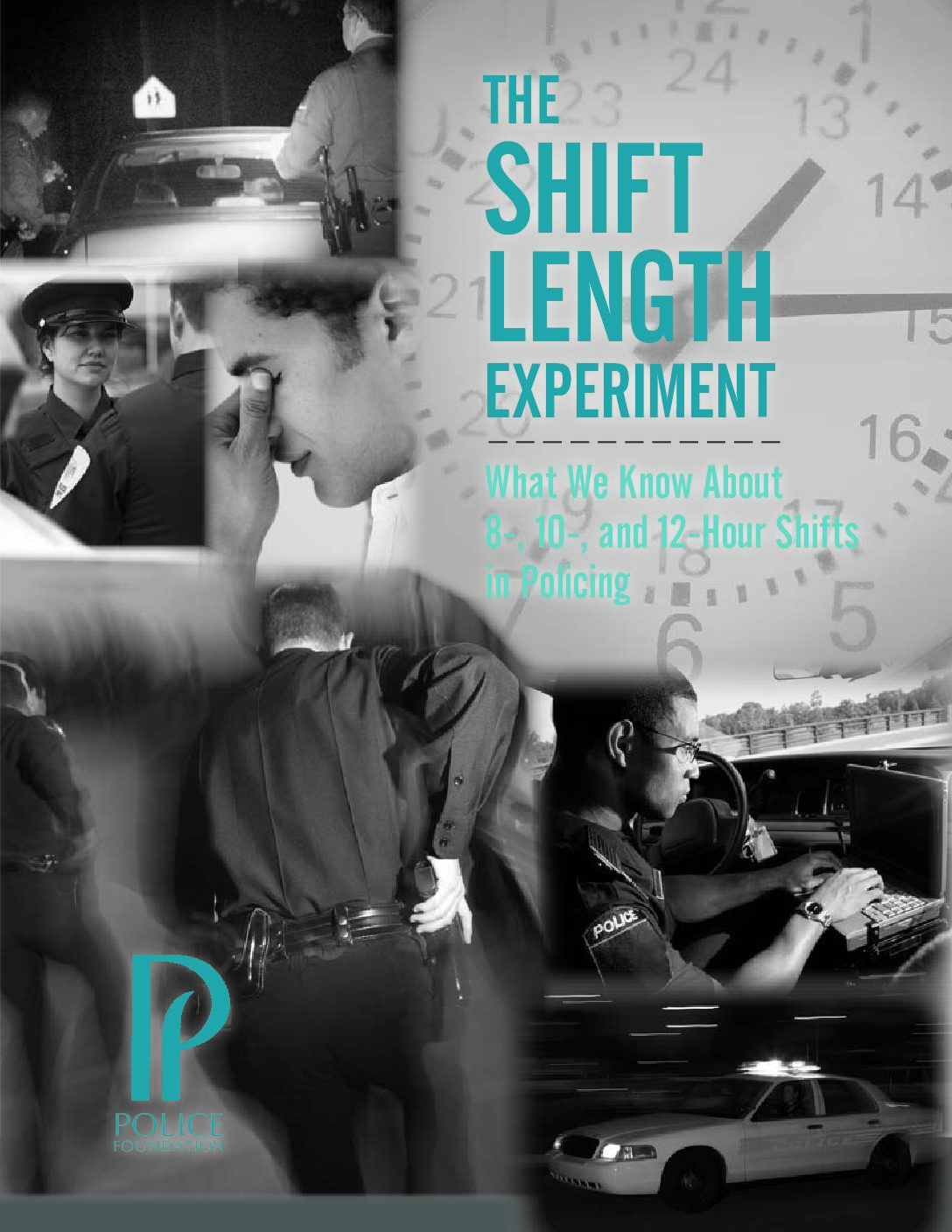Publication Date
November 2011
Author(s)
Karen L. Amendola, David Weisburd, Edwin E. Hamilton, Greg J. Jones, and Meghan G. Slipka
Media Mentions
https://www.policechiefmagazine.org/research-in-brief-which-shift-is-best/
https://www.policechiefmagazine.org/schedule-matters/
https://www.youtube.com/watch?v=xoOdH8OpS1w&list=PLpIlUxHJ-xbqzPm6DXOkXkn08onGoPnws&index=4
https://cops.usdoj.gov/html/podcasts/the_beat/01-2013/TheBeat_012013_Karen_Amendola.mp3
https://www.governing.com/archive/gov-police-officers-overworked-cops.html
Research Design
Randomized controlled trial (RCT)
Research Methods
Literature review, Surveys, Field-based experiment, Computer simulations, Health monitoring & biometrics, Lab-based experiment
Recommended Citation
Amendola, K. L., Weisburd, D., Hamilton, E. E., Jones, G., & Slipka, M. (2011). The shift length experiment: What we know about 8-, 10-, and 12-hour shifts in policing. Washington, D.C.: National Policing Institute. https://www.policinginstitute.org/publication/shift-length-experiment/
Strategic Priority Area(s)
Topic Area(s)
Contact
For general inquiries, please contact us at info@policinginstitute.org
Share
Strategic Priority Area(s)
Topic Area(s)
Contact
For general inquiries, please contact us at info@policefoundation.org
Share


